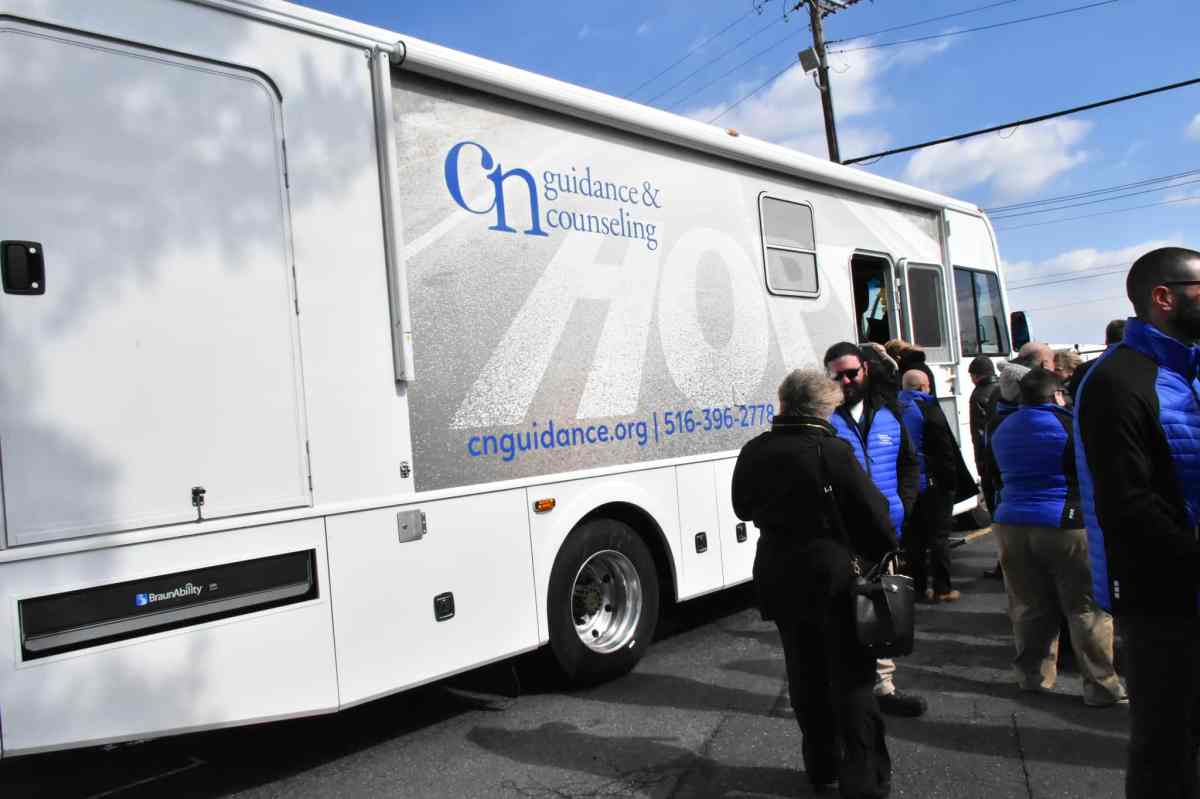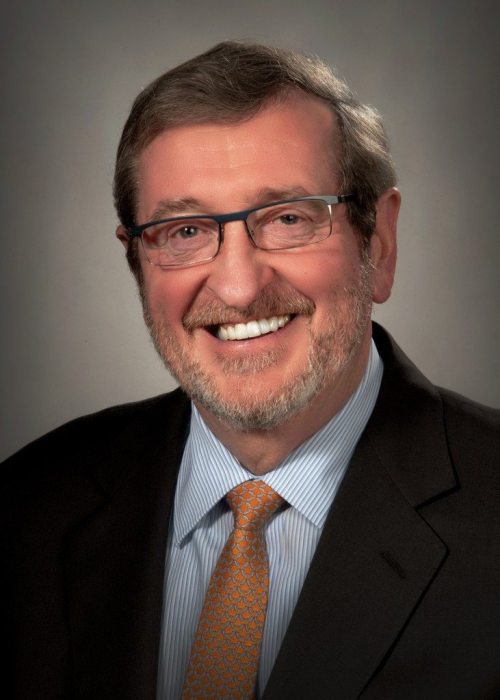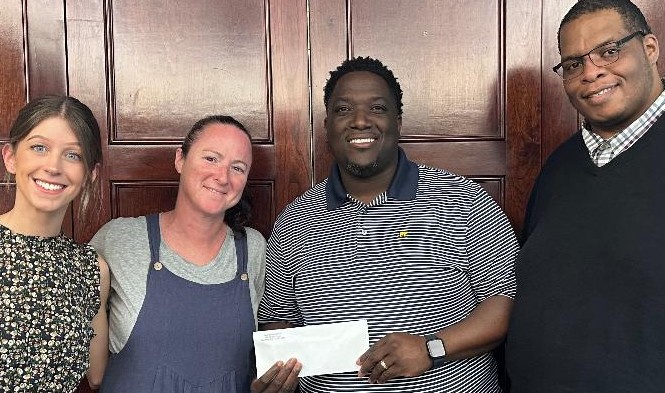Nassau County has a new weapon in the war on opioids
In the ongoing fight against opioid addiction on Long Island, many addiction experts say that barriers to effective treatment, such as lack of transportation, money, or health insurance, can be as daunting as the drugs themselves. But Nassau residents now have a new alternative for treatment thanks to Hicksville-based CN Guidance & Counseling Services, which recently introduced a new mobile recovery unit that will offer treatment services for heroin and opiate addiction to individuals throughout the county.
“Many people are not able to travel to receive the help that they need for addiction,” Arlene González-Sánchez, commissioner of the New York State Office of Alcoholism and Substance Abuse Services, said at a recent press conference introducing the new mobile recovery unit.
The unit, funded by a state grant, aims to bring treatment directly to addicts, and will utilize a registered nurse, a case worker, and two clinicians equipped with telepsychiatry equipment to connect patients with doctors at CN Guidance & Counseling Services’ headquarters.
Officials at CN (Central Nassau) Guidance said the mobile team will provide real-time interaction and an appropriate level of pre-engagement, engagement, and treatment in a private environment.
“Aggressively training community members to administer Narcan and mounting a large-scale prevention/treatment campaign have helped curb the number of overdoses we have seen in 2018,” said Jeffrey Friedman, CEO of CN Guidance & Counseling Services.
He added that “every day our phones are ringing off the hook from individuals and families seeking treatment.”
Friedman said that in the last two years alone, more than 1,000 Long Islanders have died from the opioid crisis, and demand for the organization’s services has increased to 7,000 residents from 2,000 only five years ago.
According to the Suffolk County November 9, 2018 meeting minutes of the Suffolk County Legislature’s Heroin and Opiate Epidemic Advisory Panel, top communities for overdoses have remained constant and include Coram, Shirley, West Babylon, Centereach, and Medford.
In Nassau County, CN Guidance named Massapequa, Levittown, East Meadow and Oceanside as opiate hot spots.
CN Counseling client Thomas Ingenito, 23, of East Meadow, said he used various drugs including crack, heroin and Zanax before finally getting clean following a short jail term in the Nassau County Correctional Center.
“Too often, addicts are disregarded,” he said, at the debut of the mobile recovery unit. “This will help lots of people get treatment,” he added, explaining that many people lack transportation or don’t have insurance to cover proper treatment.
The mobile unit will provide treatment regardless of an individual’s ability to pay.
“A mobile recovery unit would be a powerful tool to help increase access and reduce barriers to care,” says Dr. David Neubert, an emergency department physician at NYU Winthrop Hospital in Mineola who has led free Narcan training and also oversees opioid overdose prevention programs for the Town of Hempstead. “While our emergency department is always available to provide emergent care for those affected by opioid-related illnesses, mobile units will provide an important link to longer-term access to care and improved addiction recovery services.”
Dr. Sal Raichbach, a psychologist with Ambrosia Treatment Centers in West Palm Beach, Florida says that mobile recovery units are a great community resource.
“Often, people come to treatment because they are given an ultimatum by their loved ones or their jobs, or they are forced in through the court system,” he says. “But many people don’t have family and friends to encourage them to seek recovery, and as a result, never make it into treatment. A mobile unit bypasses a lot of the red tape and allows people direct access to support, counseling and transportation to treatment.”




























